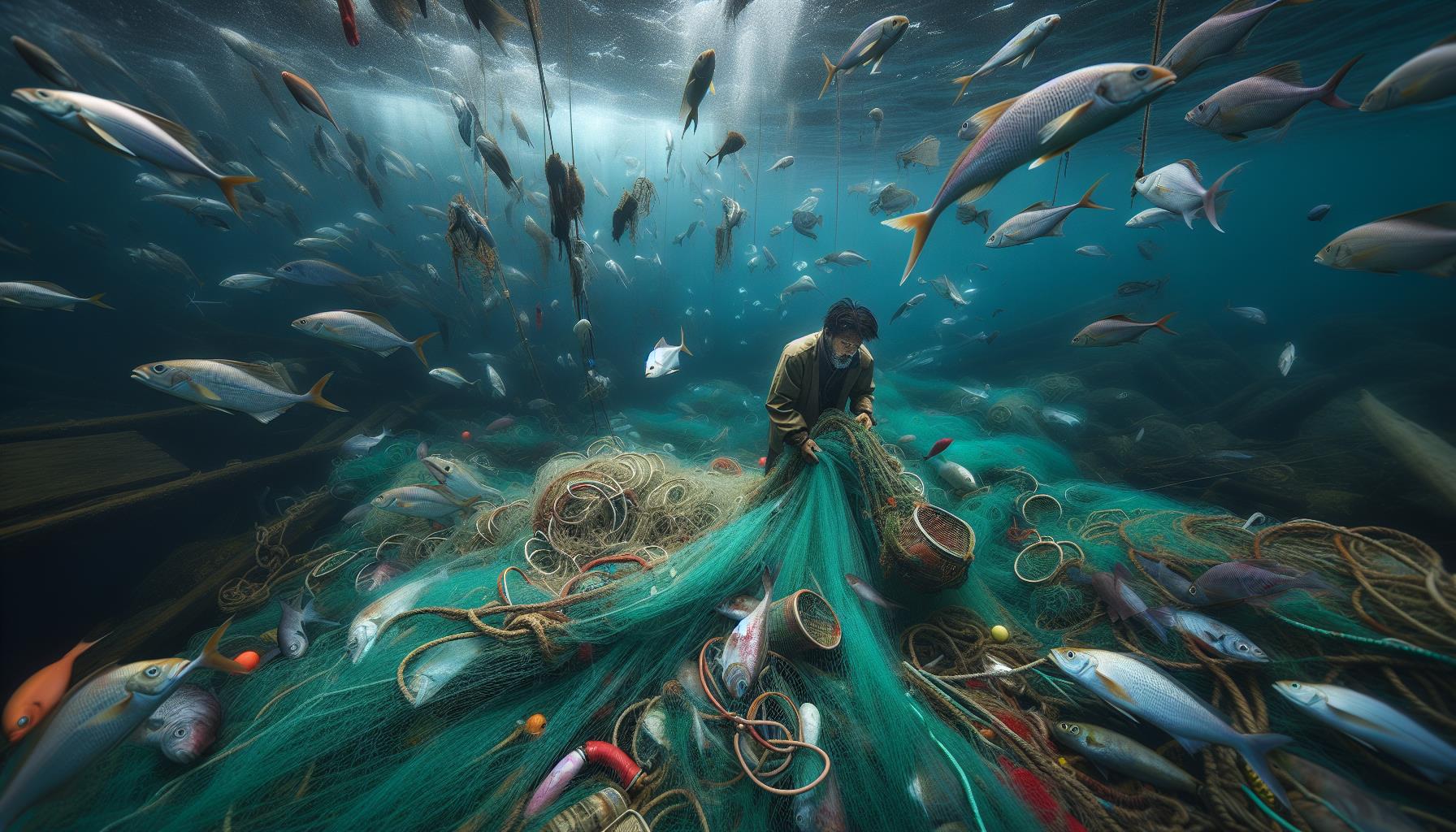AI’s Role in Marine Conservation
Recent advancements in artificial intelligence (AI) have paved the way for innovative solutions to long-standing environmental challenges, including the pervasive issue of illegal fishing. Through the power of AI technologies, environmentalists and marine conservationists are now equipped with tools more potent than ever to detect and deter unauthorized fishing activities, which have long plagued the world’s oceans.
This remarkable application of AI not only exemplifies the potential for technology to serve as a custodian of nature but also marks a significant step forward in the ongoing battle against illegal fishing practices that threaten marine biodiversity and the sustainability of global fish stocks.
The Technology Behind AI-driven Marine Surveillance
At the heart of the AI-driven approach to combating illegal fishing is the use of satellite imagery and remote sensing technology. These tools enable the constant monitoring of vast oceanic expanses, providing real-time data on maritime activity. By integrating AI algorithms, these systems can analyze patterns of movement that may indicate unauthorized fishing operations, alerting authorities to potential violations.
Beyond satellite imagery, AI technologies also harness machine learning to predict and identify high-risk zones and times for illegal fishing. By learning from historical data, AI models can forecast future activities, allowing for targeted enforcement measures. These predictive capabilities are crucial in allocating limited resources more effectively, ensuring that enforcement efforts are directed where they are most needed.
Collaborative Efforts and Global Impact
The fight against illegal fishing through AI technologies is a collaborative endeavor, involving partnerships between governmental agencies, non-governmental organizations (NGOs), and tech companies. These alliances bring together expertise from the fields of marine biology, data science, and environmental law, creating a multi-faceted approach to tackling illegal fishing activities.
The global impact of these initiatives is profound. By safeguarding marine ecosystems from the detrimental effects of illegal fishing, AI-driven efforts contribute to the preservation of biodiversity, the protection of endangered species, and the sustenance of livelihoods for communities reliant on sustainable fishing. Moreover, they play a critical role in maintaining the health of the oceans, which are essential for the planet’s overall ecological balance.
Challenges and Future Directions
Despite the promising advancements in AI technologies for marine conservation, several challenges persist. The vastness of the world’s oceans and the sophistication of illegal fishing methods demand continuous innovation and refinement of AI tools. Furthermore, the implementation of these technologies requires significant investment and international cooperation to ensure their effectiveness on a global scale.
Looking ahead, the future of combating illegal fishing with AI technologies appears promising. With ongoing research and development, there is potential for even more sophisticated AI solutions, such as autonomous drones for real-time surveillance and enforcement. Additionally, the growing awareness of the importance of marine conservation is likely to foster increased support for these initiatives, driving further advancements in the field.
Case Studies of Success
Several successful case studies highlight the potential of AI technologies in combating illegal fishing. For instance, projects utilizing satellite imagery and AI analysis have led to the detection and interception of unauthorized fishing vessels in protected areas, resulting in legal actions and significant fines. These successes serve as tangible evidence of the efficacy of AI in marine conservation efforts.
Another notable example includes AI-powered systems that have identified previously unknown patterns of illegal fishing activities, enabling the preemptive protection of vulnerable marine zones. These case studies not only underscore the practical benefits of AI technologies but also inspire further innovation and application in the field of marine conservation.
A Call to Action for Global Participation
The application of AI technologies in the fight against illegal fishing marks a pivotal moment in marine conservation. As these tools continue to evolve and prove their value, there is a growing call to action for nations, organizations, and individuals to support and participate in these efforts. By fostering global collaboration and investing in AI-driven initiatives, we can protect our oceans and ensure the sustainability of their resources for future generations.
It is a collective responsibility to embrace and advance the use of AI in safeguarding the marine environment. Through continued innovation, cooperation, and commitment, we can combat illegal fishing and preserve the health and diversity of our oceans, securing a sustainable future for all.
